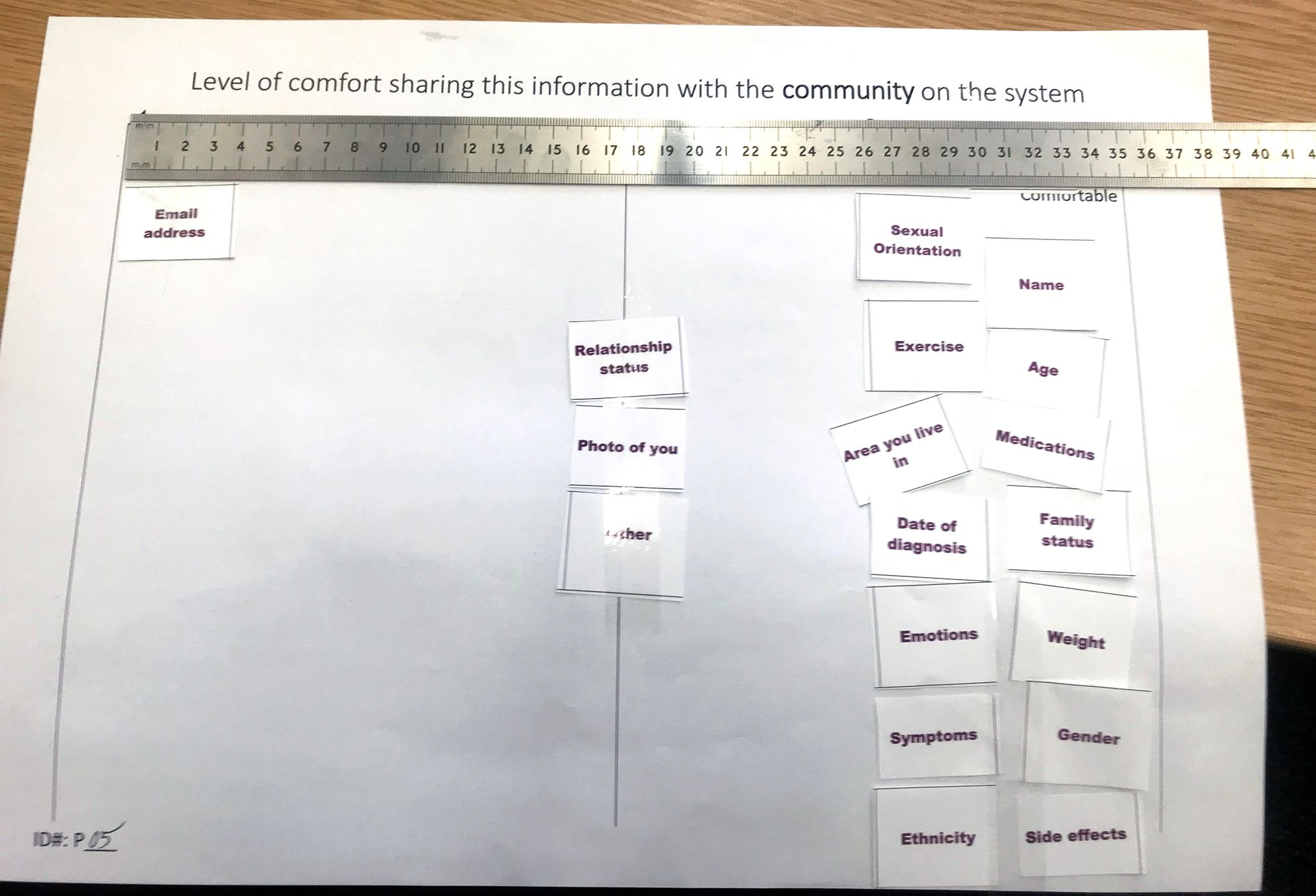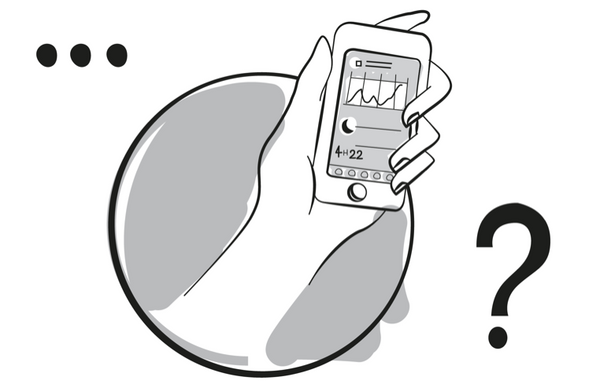Research study
Studies on Personal Data Sharing with Peers

Part of the INTUIT research programme was to investigate the sharing of personal health information within the HIV community, with others who also live with this condition (peers). Two linked studies were led by City, University of London, in close collaboration with the Terrence Higgins Trust (THT) to address the following research questions.
- How do people living with HIV understand the terms Trust, Privacy and Security for sharing data with others? How familiar are they with these terms in relation to digital tools?
- What attributes of their digital identity are people living with HIV willing to share with others? What data are especially sensitive and private?
- What Trust, Identity, Privacy and Security (TIPS) considerations do people living with HIV make when sharing data with peers? What are the implications for designing digital technologies for sharing personal health data amongst peers?
Interviews and workshop about data sharing between peers
Researchers at City and THT peer researcher interviewed 26 adults living with HIV to understand concerns about sharing their health information with others also living with HIV. This study focused on gaining a rich understanding of peer-to-peer sharing context and understanding how comfortable people felt sharing, related to TIPS concerns. A follow-up workshop with a smaller sample explored different needs and considerations around using a proposed digital platform for sharing their personal information. Workshop activities included a co-design element, where participants made recommendations for design features.
Insights
Overall, almost all participants felt they had a good understanding of Trust, Privacy and Security. Two-thirds were able to define these terms easily. Participants frequently considered characteristics of trusted individuals or organisations essential for establishing and maintaining Trust. Participants expected a platform to include a privacy policy that they could read in detail and preferred sophisticated privacy controls. There was a strong sense of community-building in participants’ considerations of sharing data with peers, particularly through an intersectional lens. At the workshops, it was indicated that users requesting data could specify their question or concern for connecting with others sharing a common experience or be offered the profile of one or more ‘trusted’ users.
Publication
A. Bussone, B. Kasadha, S. Stumpf, A.C. Durrant, S. Tariq, J. Gibbs, K.C. Lloyd, J. Bird (2020) ‘Trust, Identity, Privacy, and Security Considerations for Designing a Peer Data Sharing Platform Between People Living With HIV’. Proceedings of the ACM on Human-Computer Interaction 4 (CSCW2), 1-27. Link to publication


